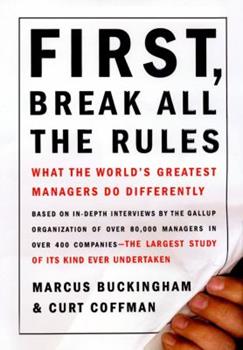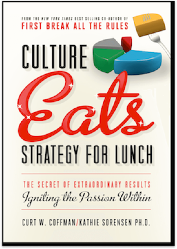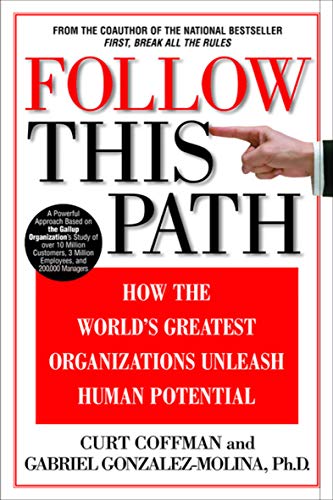Biography
Now an independent researcher, author, speaker and consultant, Curt Coffman spent 22 years at The Gallup Organization and served as its Global Practice Leader for employee and customer engagement consulting. Coffman has consulted with many Fortune 100 and 500 companies, and his work has spanned the Western Hemisphere, Europe, Asia, and the Middle East. His mission is to help organizations understand the key characteristics of a positive, productive, customer-oriented work environment. His research and consulting insights help organizations measure and manage workplace and customer conditions that show linkage to business outcomes.
In the past 10 years, Coffman has presented to thousands of groups on the topic of creating great places to work and their impact on individuals, families, organizational growth and creating engaged customers. His research and thoughts have been published in BusinessWeek, Chief Executive magazine, CIO Magazine, The Economist, Fast Company, Fortune, the Harvard Business Review, the Harvard Management Update, Inc. magazine, the International Journal of Management Reviews, Microsoft Executive Circle, The New York Times, USA Today, the Wall Street Journal, the Washington Post, and Business Today (India). With John Fleming and Jim Harter, Coffman recently published an article on Gallup’s HumanSigma model, a management approach that assesses, manages, and improves the quality of the employee-customer encounter, in the Harvard Business Review (July/August, 2005).
Coffman is the coauthor of one of the bestselling management books of all time, First, Break All the Rules: What the World?s Greatest Managers Do Differently (Simon & Schuster, 1999). Now in its 40th printing, First, Break All the Rules has been translated into 22 languages and has appeared on the bestseller lists of The New York Times, the Wall Street Journal, BusinessWeek, and USA Today. Coffman is also the coauthor of Follow This Path: How the World’s Greatest Organizations Drive Growth by Unleashing Human Potential (Warner Books, 2002). Follow This Path has been translated into 15 languages and has appeared on several international bestseller lists.
Coffman lives in Denver, Colorado, with his wife, Tammy, and three children, Katie, Claire, and Clayton.
Videos
CoffmanCurt-03-WhatGreatManagersDoDifferently
CoffmanCurt-03-WhatGreatManagersDoDifferently
Speech TopicsExpand each topic to learn more
What the World's Greatest Managers Do Differently
By Curt Coffman & Marcus Buckingham
Great managers break the rules of conventional management wisdom.
Select people based upon talent not experience, skills and knowledge
Focus people through clarity of desired outcomes, not steps or process
Motivate people through the discovery of strengths versus fixing weaknesses
Creating growth by finding the right "fit" between the person's talents and demands of the role
Get really close to people and believe a relationship is what creates performance
Play favorites and spend most of their time with the most productive people
These are just a few of the discoveries made from the study of over 250,000 managers/leaders and what distinguishes the best from the rest.
creating culture as your competitive advantage
By Curt Coffman & Dr. Kathie Sorensen
There are three critical levels of great cultures:
MacroCulture - leaders who are "more interested than interesting," always painting a compelling vision, set the right strategy with the right people and are the ambassadors of the future.
MicroCulture - local team members who create the right outcomes and determine the success of key initiatives and strategy. Members feel a charge to "create positive and personal energy in one another," that is driven by quality relationships built on trust and pressure to achieve.
BridgeCulture - the managers who are always "connecting people to a purpose," and creating a "line-of-sight" to how every person/role creates value through attracting and keeping customers (the only way organizations can build growth).
Top cultures from big to small (Google, Zappos, and Nordstrom to the local grocery store, restaurant or coffee shop) have some key characteristics in common.
Some are:
Specific about the practices, rituals and even "weirdness’s" that distinguish their culture
Have sticky values like "paranoid collaboration," "bad news fast," "fearless," etc.
Examine and move from excellence, when you study average, you get average
Know precisely their "religion" and their "science"
Move decisions as close to the action as possible
Everyone sees how what they do both attracts and keeps customers
From the study of over 1 million employees and what attracts, keeps and energizes them…
Having a clear focus, great manager, right talent and quality relationships (good friends) are the keys to personal and professional success.
Individuals want to be part of a team that has high standards and expectations to achieve the success they never even thought possible. They are constantly raising the bar for themselves and others through tracking personal bests and encouraging pressure to perform from team members. Having best friends at work is a driver of accountability and work-life balance.
People leave managers not companies. Great managers are the foundation of great organizations. How we select, focus and recognize managers can be the best predictor of results. Great managers of people have strange practices like playing favorites of high performers, getting very close to the people that report to them, firing people faster than bad managers out of genuine respect for the person and customizing plans to fit the needs of each person.
Testimonials
Blog Posts

Financial Planning in 2026 Requires a Clear Strategy
Have you noticed that the internet has never given more financial planning advice than it does right now? That's actually the problem. Your feed has become a 24/7 trading floor of hot takes. "Buy this."...
Read More
Crisis Leadership Lessons from September 11 Reveal Everyday Resilience
What if the most powerful crisis leadership lesson from September 11 isn't about the decisions made in underground bunkers, but about the farmers, truckers, teachers, and everyday workers who make heroic responses possible? After sharing...
Read More
Best Artificial Intelligence Speakers for Cybersecurity Conferences (2026 Guide)
Quick Links Artificial Intelligence Speakers Healthcare Keynote Speakers Top Technology Speakers Innovation Speakers Leadership Speakers Future of Work Speakers Get Proposal (availability & fees) If you’re searching for the Best Artificial Intelligence Speakers for Cybersecurity...
Read More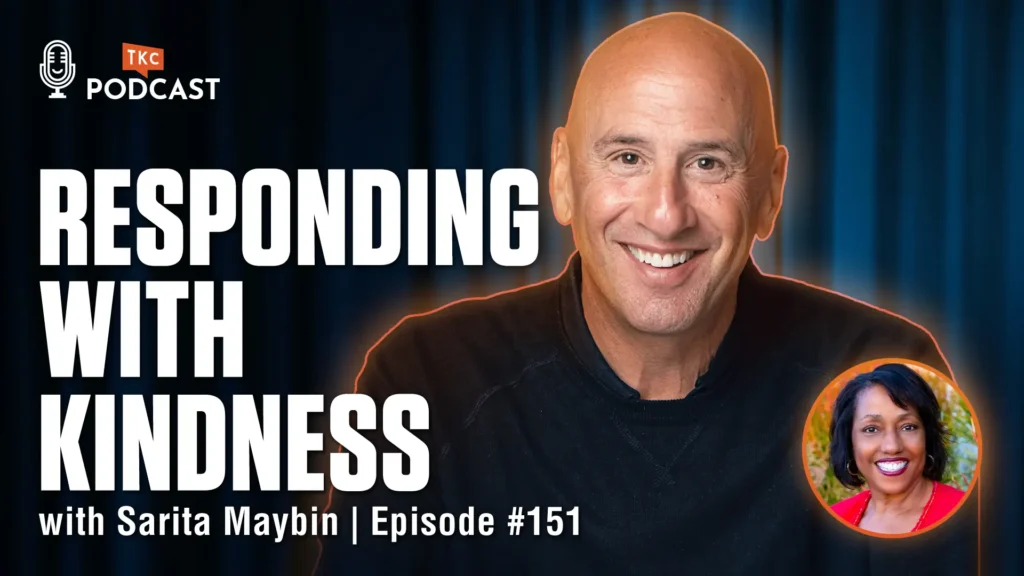
Communication Strategies from Sarita Maybin that Transform Workplace Conflict Into Collaboration
Why Your Team's Real Problem Isn't Strategy—It's Communication When was the last time a workplace conversation went sideways, not because of what was said, but how it was delivered? Most organizations pour resources into strategic...
Read More
The 2026 Keynote Speaker Lineup That Creates Real Momentum
If you're looking for a sign to power start your 2026, here it is: this is the year you stop negotiating with your potential. January arrives packed with goals, spreadsheets, and ambitious plans. However, goals...
Read More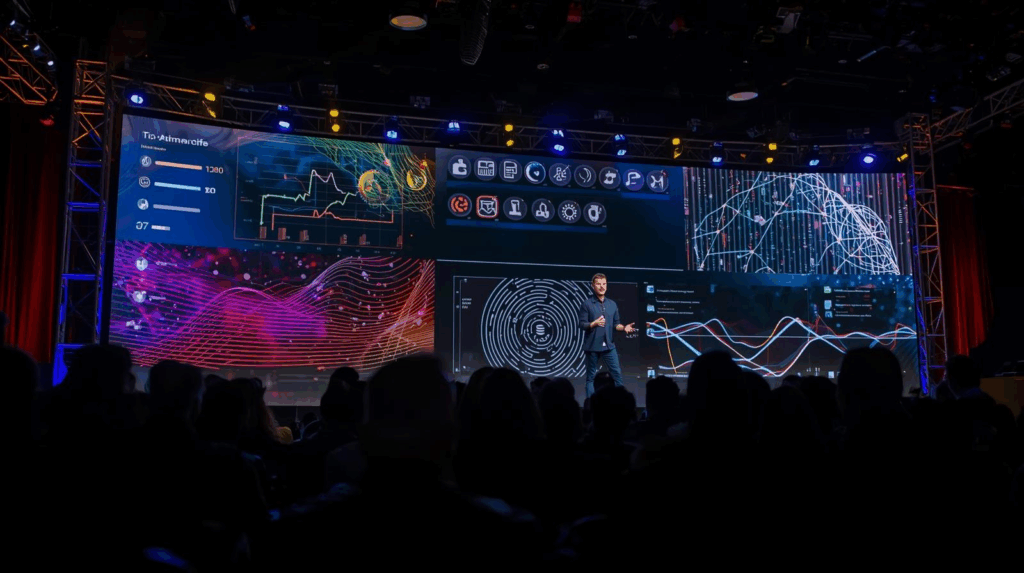
Best Artificial Intelligence Speakers for Technology (SaaS) Conferences (2026 Guide)
Quick Links Artificial Intelligence Speakers Healthcare Keynote Speakers Top Technology Speakers Innovation Speakers Leadership Speakers Future of Work Speakers Get Proposal (availability & fees) This guide features the Best Artificial Intelligence Speakers for Technology (SaaS)...
Read MoreRelated Customer Experience Speakers
Get in TouchContact US
Fill out the form so we can best understand your needs.
A representative from The Keynote Curators will reach out to you.

